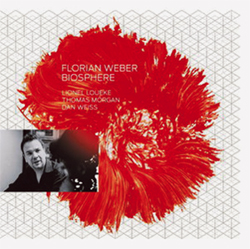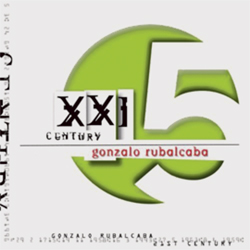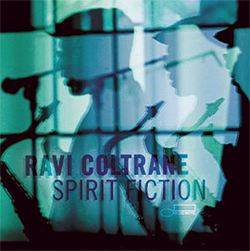On his debut album for the esteemed Blue Note label, Coltrane hooks up with two groups: his usual quartet and the quintet from his second album. The quartet―Luis Perdomo (piano), Drew Gress (bass) and E.J. Strickland (drums)―are featured on original compositions that include both the most abstract and most openly emotional pieces on the album, all written by the quartet or Coltrane. The quintet―Geri Allen (piano), Ralph Alessi (trumpet), James Genus (bass) and Eric Harland (drums)―works out on three Alessi compositions and, joined by coproducer Joe Lovano on tenor, Ornette Coleman’s deconstructed blues “Check Out Time.” Lovano and Coltrane also have an extended sax conversation mediated by Allen on Paul Motian’s “Fantasm.” Given more playful material, the quintet brings a looser, more let-things-fall-where-they-may energy to the proceedings, with an especially rollicking good time had by all on the Coleman composition. The quartet, however, brings an intensity to the material that takes the listener deeper into Coltrane’s universe, where music offers a spiritual component and a key to life’s deeper mysteries.













